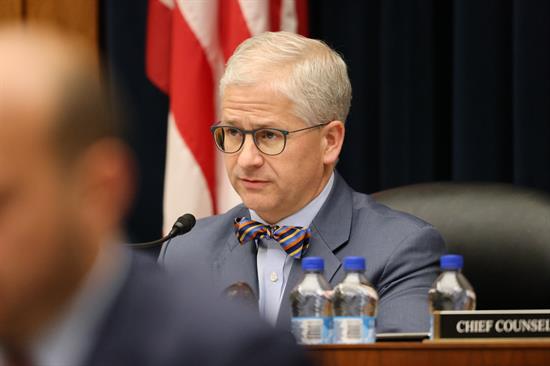Even though the Securities and Exchange Commission has agreed to pause implementation of its recently finalized climate disclosure rule amid the various legal challenges, members of Congress are still moving ahead in an attempt to revoke the rule.
 In an April 17 markup session, the House Financial Services Committee advanced a Congressional Review Act (CRA) measure to rescind the SEC’s rule, contending that it’s a “gross regulatory overstep.” The committee approved the measure on party lines, along with an additional 12 pieces of legislation that are now cleared for full House consideration.
In an April 17 markup session, the House Financial Services Committee advanced a Congressional Review Act (CRA) measure to rescind the SEC’s rule, contending that it’s a “gross regulatory overstep.” The committee approved the measure on party lines, along with an additional 12 pieces of legislation that are now cleared for full House consideration.
H.J. Res. 127 would formally nullify the SEC’s rule under the CRA process. The two-page resolution simply states that, “Resolved by the Senate and House of Representatives of the United States of America in Congress assembled, that Congress disapproves the rule submitted by the Securities and Exchange Commission relating to ‘The Enhancement and Standardization of Climate-Related Disclosures for Investors’ (89 Fed. Reg. 21668; published March 28, 2024), and such rule shall have no force or effect.”
H.R. Res 127 was introduced on April 9 by Rep. Bill Huizenga (R-MI) along with 21 cosponsors who are also members of the Financial Services Committee. The resolution was also the subject of an April 10 hearing by the committee titled “Beyond Scope: How the SEC’s Climate Rule Threatens American Markets.”
“The fatally flawed rule exceeds the agency’s authority, threatens our economy, and would overwhelm investors with non-economic information. It’s costly, complex, and against the public good,” stated House Financial Services Chairman Rep. Patrick McHenry (R-NC). “The SEC’s stay of the rule is not enough. So, House Republicans are taking action to protect American markets, job creators, workers, and investors from this destructive rule.”
Senate Action
Meanwhile, in addition to the House resolution, Sen. Tim Scott (R-SC), who serves as the ranking Republican of the Senate Banking, Housing and Urban Affairs Committee, on April 18 introduced a companion resolution to overturn the rule.
Scott was joined by 34 other senators in sponsoring the resolution, including 10 Republican members who serve with Scott on the Banking Committee, as well as Democratic Sen. Joe Manchin (W.Va.).
“Over and over again, SEC Chair Gensler has disregarded the real-world impacts of his aggressive regulatory agenda in his dogged pursuit of left-wing political priorities. This rule is no exception. The SEC’s mission is to regulate our capital markets and ensure all Americans can safely share in their economic success—not to force a partisan climate agenda on American businesses. This rule is federal overreach at its worst, and the SEC should stay in its lane,” Sen. Scott said in a statement announcing the resolution.
Shortly after the SEC announced the release of the final climate disclosure rule, Sen. Scott declared his intent to use the CRA process to fight the rule and its implementation.
In addition, nine suits were filed against the rule in various circuit courts; those have now been consolidated to be heard by the U.S. Court of Appeals for the Eighth Circuit.
What Is the CRA?
Under the Congressional Review Act (CRA), Congress has authority to review and choose to reject new regulations issued by federal agencies. Under the CRA, before most final rules can take effect, an agency must submit them and supporting information to the House, Senate and the comptroller general.
Rules defined as “major” under the CRA may not take effect for at least 60 days (30 days for non-major rules), with exceptions in some cases. Congress generally has a 60-day window to act on a joint resolution of disapproval to take advantage of the CRA’s special “fast track” procedures.
If both the House and Senate pass the resolution and it is signed by the President, the CRA states that the disapproved rule “shall not take effect (or continue).”
In this case, however, it seems safe to assume that President Biden would veto any attempt to revoke the SEC’s climate disclosure rule, like he did when he vetoed a CRA resolution to block implementation of the Department of Labor’s ESG rule, officially named “Prudence and Loyalty in Selecting Plan Investments and Exercising Shareholder Rights.”

